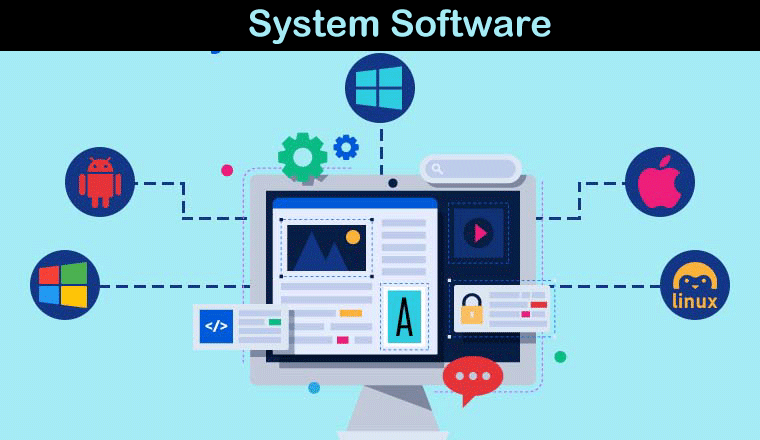System Software DefinitionSystem software refers to the software that manages and controls the hardware and other software components of a computer system. It includes operating systems, device drivers, firmware, and utility programs. The system software is responsible for providing an interface between the user and the hardware, as well as managing the resources of the computer system. In this article, we will discuss the history and evolution of system software, its types, and its importance. 
History and Evolution of System SoftwareThe history of system software dates back to the early days of computing when the first electronic computers were built. These early computers were large and expensive, and their programming was done using machine language, which was difficult and time-consuming. To simplify the programming process, an assembly language was developed, which used mnemonics to represent machine instructions. The first operating system was developed in the late 1950s for the IBM 7090 computer. This operating system called the IBSYS, allowed multiple users to access the computer system simultaneously. In the 1960s, operating systems like CTSS and Multics were developed, which introduced the concept of time-sharing, allowing multiple users to access the computer system at the same time. In the 1970s, the UNIX operating system was developed by Ken Thompson and Dennis Ritchie at Bell Labs. UNIX was designed to be portable, efficient, and modular, and it became widely used in academic and research institutions. The development of UNIX led to the development of other operating systems like Linux, which is a free and open-source operating system. In the 1980s, the personal computer revolutionized computing, and with it came the development of new operating systems like MS-DOS and later, Windows. These operating systems were designed to be user-friendly and were widely adopted by individuals and businesses. Types of System Software
In addition to the types of system software mentioned above, there are also other specialized types of system software, such as virtual machine managers, database management systems, and network operating systems. These types of system software are used in specific contexts, such as virtualization, database management, and network management, respectively. Virtual machine managers, for example, are used to create and manage virtual machines, which allow multiple operating systems to run on the same physical hardware. Database management systems are used to manage large amounts of data, and network operating systems are used to manage network resources and facilitate communication between different devices on a network. Moreover, the development of system software has also led to the creation of new programming languages, such as C, C++, and Java. These programming languages are used to develop system software and other applications that run on the computer system. As such, knowledge of system software is important for software developers and IT professionals, as it forms the foundation for the development and management of computer systems. Another important aspect of system software is its ability to improve system performance. For example, disk defragmentation software is used to reorganize data on a hard drive, which can help to improve system performance. Similarly, utility programs such as registry cleaners can help to optimize the system registry, which can also improve system performance. Importance of System Software
ConclusionSystem software plays a crucial role in the functioning of a computer system. It provides an interface between the user and the hardware, manages the resources of the computer system, and provides security to the system. The history of system software dates back to the early days of computing, and the evolution of system software has led to the development of various types of system software, including operating systems, device drivers, firmware, and utility programs. Each type of system software serves a specific purpose, and together they ensure that the computer system runs smoothly and efficiently. In recent years, system software has become more advanced and complex, with new technologies such as cloud computing, virtualization, and artificial intelligence. These technologies have revolutionized the way we use computers and have made them more powerful and flexible. As the use of computers becomes more widespread and important in our daily lives, the importance of system software also increases. It is essential to keep the system software up-to-date and secure to ensure the proper functioning of the computer system and protect it from security threats. In conclusion, system software is a crucial component of any computer system, and it plays a vital role in ensuring the proper functioning of the system. It provides an interface between the user and the hardware, manages the resources of the computer system, and provides security to the system. As technology continues to advance, the importance of system software will only continue to grow, and it will remain an essential part of the computer system for years to come.
Next TopicTrade Definition
|
 For Videos Join Our Youtube Channel: Join Now
For Videos Join Our Youtube Channel: Join Now
Feedback
- Send your Feedback to [email protected]
Help Others, Please Share










